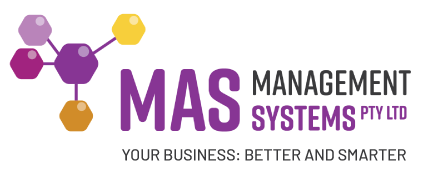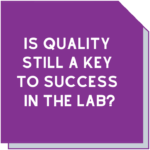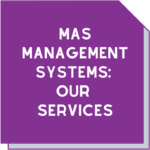What’s a quality management system and do you need it?
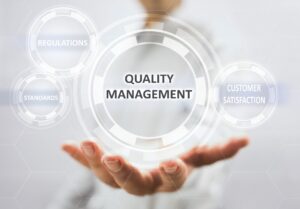 According to the American Society for Quality website a quality management system (QMS) is defined as:
According to the American Society for Quality website a quality management system (QMS) is defined as:
‘…a formalized system that documents processes, procedures, and responsibilities for achieving quality policies and objectives. A QMS helps coordinate and direct an organization’s activities to meet customer and regulatory requirements and improve its effectiveness and efficiency on a continuous basis.’
Translated into plain English, a QMS brings your business ‘stuff’ together in an efficient and effective package. This means that you’ll continue to meet your customers’ needs, even if the customer doesn’t quite know what their needs are.
So, does your business need a quality system? Here’s some questions you need to ask yourself:
- Do you know how to run a business?
- Would you like your staff to be less reliant on you so you can remove Floundering Founder Syndrome?
- Do you want to grow your business or maintain the level you’re at now?
- Is there something in place to find out what your clients want?
Let’s look at each question in a little more detail.
You know how to run a business
Congratulations! This means that you must have a reliable, effective system in place. You have skilled and competent staff with the time and ability to implement your integrated system. Your clients see you as a trusted provider. Well done!
However, if any of these elements is lacking, you may want to read on…
Floundering Founder Syndrome
 This applies to anyone who feels the business they started and are building relies only on them.
This applies to anyone who feels the business they started and are building relies only on them. Researchers have found that fast growing firms need new managerial and professional skills.
Leadership becomes more complex at this phase in the business cycle.
These are skills founders may not have and can be a source of stress and frustration for them.
To combat this, coherent business systems are needed. These systems should ensure delivery of the products and services offered by the business without relying on the founder.
The business will be able to run whether the founder is there or not, providing a much-needed sense of relief.
Growing or maintaining your business
Generally, people want their business to grow and develop. They do this by increasing the products or services they offer, the number of clients using those products or services, or both.
Although this can be a complex process, the basis of business growth is trust. Clients must be able to trust your business and have assurance in your ability to deliver what you say you will.
W. Edwards Deming, one of the 20th Century’s great management thinkers, wrote on the fundamental need for trust in business to assure success.
Here’s a story that Michael McLean of McLean Management Consultants shared that highlights the importance of trust:
A small distributor of steel consumables sold products to a large multi-national mining equipment company in Australia. The distributor had ISO 9001 and a worldwide purchasing agreement and only sourced products from ISO 9001 Certified and NATA Accredited testing laboratory suppliers. Since they had been working together for 30 years, they had built a trusted bond.
Unfortunately the mining company had a failure in the workshop and wanted the distributor to rectify the cause immediately or they would lose the contract. Mike was called in to help both parties and the supplier to determine where in the process the causes had occurred. In addition, he needed to determine what corrective actions the suppliers could implement to stop it reoccurring.
Using a variety of quality management analysis techniques to gather data and do a deep dive into the problem, the parties discovered several causes that were not related to the distributor’s product. By working cooperatively and using quality management tools, trust was restored and they all agreed to implement several changes.
As well as saving a 30-year relationship that was on the brink of ending, the fact that the distributor had a certified quality management system ensured that they had met the customer’s needs all along. Trust was restored throughout the supply chain through the root cause analysis, made easier by having a QMS in place.
As the saying goes, “In God we trust; everyone else bring data”.
What do your clients want? What do they use to identify the best suppliers of those wants?
 When developing and promoting their products and services, successful business founders and marketing and sales managers know they need to have their ideal clients in mind .
When developing and promoting their products and services, successful business founders and marketing and sales managers know they need to have their ideal clients in mind .
How do you even know what your customers want in the first place? With its focus on customers, a quality management system is the perfect framework to help you discover this critical piece of information.
But if you think about it, a customer is also busy trying to run their business. They may have a quality management system in place to help them efficiently and effectively identify their ideal supplier. Many of your customers probably use checklists to help them identify potential businesses with those critical attributes.
These factors include obvious one like the availability of goods and services they’re seeking. However there are other factors that go into the decision-making process.
Put yourself in their place and think of the questions they would ask their ideal supplier. Make sure your business is the one to answer those questions.
Consistency is critical
Another key factor relates to the ability of your business to provide a consistent and reliable product or service. When you visit the local barista to get your daily caffeine dose, you want that dose to be hitting the spot every time. The barista might not have a certified QMS, but that doesn’t mean that they don’t have a system in place to ensure that you consistently get that perfect brew.
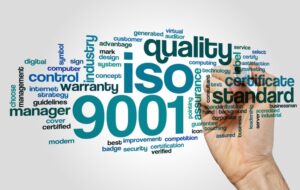
One of the primary considerations is establishing that your business is trustworthy.
Most buyers look for social proof particularly through online reviews. That’s why developing and maintaining a positive business brand is vital for growing your business. So how can a QMS help with this?
Frameworks like ISO 9001 and the Australian Business Excellence Framework help businesses focus on customer service.
In the broadest sense they support delivering consistent, superior value to those customers. For example, ISO 9001 requires that an organisation demonstrates it meets customer, statutory and regulatory requirements. However, it also requires information on how it maintains and enhances customer satisfaction.
By meeting and exceeding customer requirements, you’ll instil confidence in your business and develop a sense of loyalty.
Follow up calls, surveys and prompt resolution of complaints will ensure that ‘we are customer focussed’ isn’t just a line on your website.
How can we help?
We can support your business plans by fine-tuning the system you have in place or creating an effective, efficient system specifically for you.
Call Maree on 0411 540 709 for a confidential, obligation free discussion on how we can support your business to work better and smarter. Or email your questions to info@masmanagementsystems.com.au
Remember, you don’t have to do this alone!
Download the article What is a quality management system?
